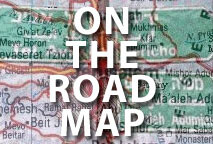9 May 2003

Human Rights Watch urged the sponsors – the United States, Russia, the European Union and the United Nations (the Quartet) - to immediately establish a separate mechanism to monitor progress in the areas of human rights and humanitarian law and to provide benchmarks for assessing such progress.
In a fourteen-page briefing paper, The Roadmap: Repeating Oslo’s Human Rights Mistakes, Human Rights Watch analyzes the new peace plan in the light of previous Israeli-Palestinian agreements – all of which fatally ignored basic human rights and international humanitarian law protections. Instead, the plans let abuses proliferate to the point where they undermined the entire negotiating process.
The rights group released its in-depth analysis after a sharp surge in violence in the hours after the roadmap’s release on April 30 killed nine civilians and injured more than 120.
“You’d think the United States and other Quartet members would have learned through painful experience that human rights standards and effective monitoring can strengthen a transition process like this one,” said Hanny Megally, executive director of the Middle East and North Africa division of Human Rights Watch. “Instead, they’ve left them out almost entirely. Unless this gap is remedied, the whole plan is much more likely to fail.”
Its sponsors present the roadmap as a “performance-based and goal-driven” plan to bring resolution to the Israeli-Palestinian conflict. It envisages a three-phased process and a set of goals that include the establishment of a Palestinian state, and end to occupation and a final resolution to the conflict. The document includes detailed recommendations to Quartet members and urges donors to prioritize PA judicial reform. Human Rights Watch also warned that human rights and humanitarian law obligations, such as those relating to medical and humanitarian access, were potentially undermined by being presented in the roadmap as benchmarks to be achieved in a reciprocal process of trust-building. These obligations cannot be bargained away, Megally said.
Other key responsibilities are entirely missing, such as the obligation on all sides to investigate and bring to justice individuals who commit serious abuses such as unlawful killings or deliberate attacks against civilians.
Human Rights Watch urged Powell and other Quartet members to establish a separate human rights monitoring mechanism to advise on benchmark progress, and to prevent new abuses from undermining public confidence in the roadmap. If no separate human rights mechanism is established, all roadmap-monitoring committees should include members trained in IHL and human rights standards.
“The current framework, where the CIA and other security forces monitored security progress, has been shown to fail in the past. It’s a recipe for abuse,” said Megally.
The organization provides detailed recommendations to Quartet members and other roadmap monitors for creating and implementing such safeguards.
Human Rights Watch takes no position on the territorial disputes that lie at the heart of the Israeli-Palestinian conflict, but is dismayed at the consistent failure of the United Nations and its member states to enforce U.N. Security Council resolutions aimed at implementing Geneva IV provisions intended to protect civilians on the ground, including an end to attacks against civilians and Israeli settlement activity. Any meaningful agreement must contain guarantees of the rights and protections for the civilian population of the West Bank and Gaza as well as Israel.
Related Links: